
Focus on the Republic of Korea
KIAT - a European foothold for global market penetration
Joo-Suk, Jason Kang is a National Project Coordinator (NPC) of South Korea and director of the KIAT Europe Office in Brussels. KIAT stands for the Korea Institute for the Advancement of Technology and was established to promote industrial technology innovation efficiently and systematically as well as provide support for the development of related policies. Jason, who has been in the KIAT for 16 years, worked for international R&D cooperation for half of that time. He arrived in Europe just before the arrival of Covid-19, so has spent the past year and a half doing his best, distanced and digital, to act as a liaison between companies and organisations in Korea and Europe, and within Europe itself. “The past year and a half has not been what I had imagined when I left Korea. One of my main tasks is to set up and expand networks, so all the face-to-face meetings I had looked forward to were confined to screen-based contacts. Hopefully, that will change soon and I can get to come face to face with the people I have met only over the internet.” And it is through this same medium, on screen, that he explains the mission of KIAT, his own role in this and the relationship with the Eureka Cluster Programme in general and ITEA specifically in targeting potential partnerships and synergy.
Presence at the heart of Europe
“The fact that we have an office in Brussels is very much part of our strategy to achieve the objective of enabling global market penetration by Korean SMEs and mid-tier companies in the era of the Fourth Industrial Revolution,” Jason explains. Founded in 2009, KIAT supports its government’s industrial technology policymaking, establishing innovation strategies for industrial technology and devising basic plans for the development of the materials and components sector as well as formulating plans to promote technology transfer and commercialisation. The direction is set in new industry development strategy roadmaps. “So, what we are able to do is to provide information from a European context that will enable Korean SMEs and other companies to find their way in Europe and, of course, the funding options that exist for them to participate in Eureka initiatives. So we help them to gain a good picture of the environment – R&D, technological, cultural, commercial and financial – in which they may find themselves as a partner and a player. In so doing, these companies stand a better chance of establishing themselves in the European landscape.”
Support for software companies
ICT today is a huge component of any modern economy and for Korea, its importance cannot be understated, particularly when you consider that this accounts for 36% of Korean exports, with a value of 200 billion dollars. “However,” Jason points out, “despite such impressive figures, we must admit that on the software side, the picture is a little less rosy. This is one of the main reasons why we are focusing on cooperation with the Eureka Clusters Programme, and especially ITEA because here we hope that Korean SMEs that are working in the ICT sector can gain the support they need from a software innovation perspective. For our part, we provide funding to enable Korean SMEs, start-up companies, research institutes and universities to set up research projects and for R&D initiatives. We have two ministries that focus on the software industry,” Jason explains. “The Ministry of Science and ICT and the Ministry of Trade, Industry and Energy, which also supports software companies with global market ambitions.”
“ITEA is becoming a well-known name in Korea and has significant pulling power”
52 partners, 28 projects
As part of the Ministry of Trade, Industry and Energy, KIAT organises promotional activities to inform Korean companies of the opportunities to make use of the government’s initiatives and to make them aware of the Eureka programme and what it can offer. “Knowing what is possible and feasible is half the work. We also realise that language can be a barrier to cooperation, so we also try to support companies in bridging this very essential gap. You can’t cooperate with European partners if you can’t communicate with them.” Nonetheless, Korean companies and organisations have been involved in a large number of ITEA projects to date (52 partners across 28 projects). With some measure of success too. Such as the DANGUN project led by Professor Myoungho Sunwoo of Hanyang University (see partner article) and with the participation of other major players like LG Electronics, or STACK in which the Korea Electronics Technology Institute played a prominent role, and the recently finished OPTIMUM project involving ETRI, the Electronics and Telecommunications Research Institute, aimed at supporting partners and industry in general to get ready for Industry 4.0 challenges.
A broader market perspective
Jason is very clear about the benefits gained by Korean companies from their involvement in the ITEA Community. “There are two key areas in which our companies benefit: technology and market. The software industry in Korea is not as well developed as it is in Europe and European partners have much to offer in terms of experience and expertise. With such a restricted market infrastructure at home, therefore, Korean software companies lack the wherewithal to go to the global market. Another issue that affects SMEs is that most of the large Korean companies like Samsung have their own research divisions and programmes. This limits not only the domestic market for SMEs but also opportunities for R&D partnering. Which is why we focus so much on helping these SMEs to explore the opportunities in the Eureka Clusters, which offer a step towards the global market.”
Enthusiasm is high
“It has become evident that this opportunity is being increasingly recognised in Korea. We are seeing more and more interest in participating in ITEA projects. Enthusiasm is high. ITEA is becoming a well-known name in Korea and has significant pulling power. They are able to see many success stories as a reference. Companies that have acquired knowledge and experience of both technology and market, and the value of the networks they have built up through being part of the ITEA Community. All this enhances their opportunities to do business on a more global scale. I can hardly think of a more attractive prospect.”
Balance
In terms of the objectives of both ITEA and KIAT, they have much in common, yet Jason feels that when it comes to the approach taken by the Eureka Clusters, they might want to bear something in mind for Korean SMEs that participate in projects. “Korean companies could benefit more from a little more focus from a project perspective. We all know that ITEA has a bottom-up approach, and that’s all well and good because the aim is to produce results that have impact. However, at the same time it would help if a bit more direction could be provided, top-down if you like, to help the participants gain this focus early on. I’m sure that this would give Korean participants greater certainty and get the ball rolling faster in the beginning.”
More information:
https://www.kiat.or.kr/

Other chapters
Use the arrows to view more chapters
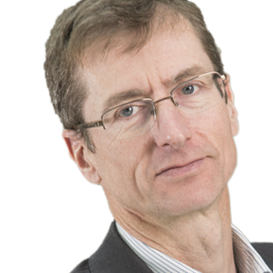
Editorial
By Jean-François Lavignon

Country Focus: Korea
KIAT - A European foothold for global market penetration

Hanyang University
The Engine of Korean Innovation

ITEA Success story: Flex4Apps
Deep customer understanding, backed by data
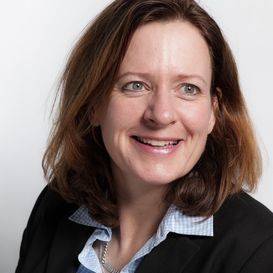
Sustainability
The insights of Atos
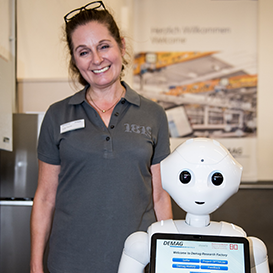
Community talk with Anja Fischer
From a matter of work to a matter of the heart

Cyber Security & Cloud Expo 2021
Keeping the focus on customer orientation

ITEA Success story: DANGUN
Paving the way for the autonomous vehicle revolution
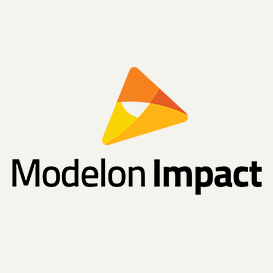
SME in the spotlight: Modelon
Making impact, literally, the next big thing

By and for end-users
HPA and I2PANEMA strengthen port ecosystems
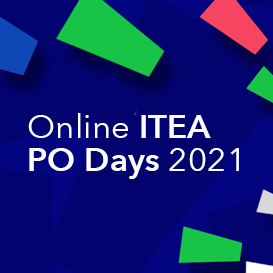
ITEA 4 - And we’re off!
First ITEA 4 Call launched during Online ITEA PO Days 2021

